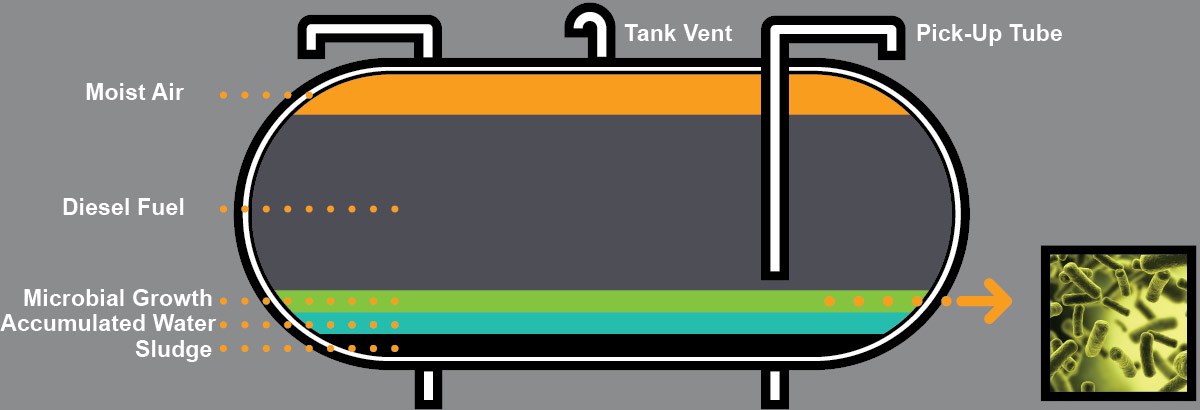
As the winter months bring an Arctic chill, the two most concerning elements that your fuel faces are moisture contamination and potential gelling.
Water exists in diesel. Per ASTM D975, the Standard Specification for Diesel Fuel, it can contain an upwards of 500 parts per million (PPM), and water contamination can potentially occur when your fuel system or fuel storage tanks are not kept dry. Since water freezes at 32 degrees Fahrenheit, any moisture in the fuel system is at risk to freeze, resulting in clogged fuel filters and frozen fuel lines. Trucks ultimately lose power, stall and even prevent start-ups. It is paramount for fleet owner operators to maintain a maintenance schedule that would help combat moisture and keep the system dry. This includes:
- Emptying water separators
- Draining saddle tanks
- Fastening fuel caps securely
Another side effect from Arctic conditions is potential fuel gelling, which is when the paraffin wax in diesel fuel solidifies together and separates from the product. The fuel becomes cloudy in appearance when otherwise it would appear clear. This occurrence is referred to as the fuel’s cloud point. As the cold weather conditions worsen, the wax gels together, potentially clogging fuel filters and resulting in failure to perform.
Each type of fuel has its own cloud point – and fuel can be seasonally adjusted to increase operability at lower temperatures. It is important for the fleet owner/operator to understand that not all fuel is equal. To understanding fuel’s winter operability point can help keeps trucks running.
How can a fleet owner combat gelling?
- Understand what your fuel’s winter operability looks like.
- Ensure your fuel’s operability temperature is aligned with your demographic based needs. Ex, if your trucks are garaged in Boston and you are driving to VT the Boston’s fuel operability might not get the job done in VT.
- Keep the system dry. See above on how to combat moisture.
- Utilize Diesel Direct’s proprietary additive formulations designed to help prevent gelling.
Diesel Direct proactively adjusts their fuel based on the climate and location when delivering products. We help protect our customers by sourcing fuel supply that contains proprietary winter additive and or kerosene blends – whatever the conditions are calling for, we will deliver.
Contact our fuel professionals today to discuss how we can help improve your fuel buying strategies, winter operability program and gives you the edge you deserve.


